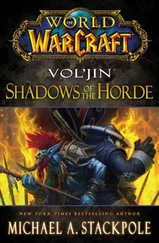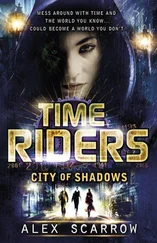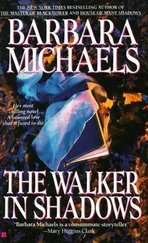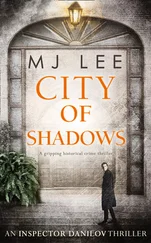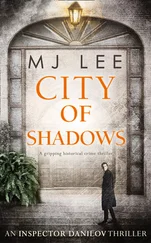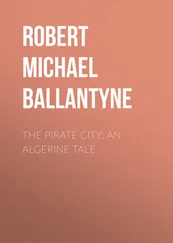Michael Russell - The City of Shadows
Здесь есть возможность читать онлайн «Michael Russell - The City of Shadows» — ознакомительный отрывок электронной книги совершенно бесплатно, а после прочтения отрывка купить полную версию. В некоторых случаях можно слушать аудио, скачать через торрент в формате fb2 и присутствует краткое содержание. Жанр: Исторический детектив, на английском языке. Описание произведения, (предисловие) а так же отзывы посетителей доступны на портале библиотеки ЛибКат.
- Название:The City of Shadows
- Автор:
- Жанр:
- Год:неизвестен
- ISBN:нет данных
- Рейтинг книги:5 / 5. Голосов: 1
-
Избранное:Добавить в избранное
- Отзывы:
-
Ваша оценка:
- 100
- 1
- 2
- 3
- 4
- 5
The City of Shadows: краткое содержание, описание и аннотация
Предлагаем к чтению аннотацию, описание, краткое содержание или предисловие (зависит от того, что написал сам автор книги «The City of Shadows»). Если вы не нашли необходимую информацию о книге — напишите в комментариях, мы постараемся отыскать её.
The City of Shadows — читать онлайн ознакомительный отрывок
Ниже представлен текст книги, разбитый по страницам. Система сохранения места последней прочитанной страницы, позволяет с удобством читать онлайн бесплатно книгу «The City of Shadows», без необходимости каждый раз заново искать на чём Вы остановились. Поставьте закладку, и сможете в любой момент перейти на страницу, на которой закончили чтение.
Интервал:
Закладка:
‘Ah, he’s been teaching banned philosophers and you’re on to him!’
‘This relates to our friend Herr Keller and his abortion clinic.’
Wayland-Smith stopped smiling.
‘I thought that was dead in the water.’
‘This is about a missing woman, not Keller. But there’s a link between him and the woman, possibly a link between both of them and the priest.’
‘On the face of it that would be extremely unlikely I’d have thought, Sergeant.’ His voice was flat. He didn’t like the conversation’s direction.
‘Father Francis Byrne.’
The State Pathologist said nothing, but Stefan could see the name meant something to him. Wayland-Smith knew who Father Byrne was.
‘You know him then?’
‘I know of him.’
‘You sound like you don’t like him.’
‘I’m not too keen on the company he keeps.’
‘What do you mean?’
The State Pathologist hesitated for a moment.
‘Whatever this is about, it sounds unpleasant, very unpleasant. Father Byrne has powerful friends; I think you should know that. One very powerful friend in particular. I’d be careful asking questions that associate him with an abortionist, unless you’re sure of your ground. Even then — ’
‘I just want to talk to him. Apparently he’s out of the country now.’
‘Do you know who Monsignor Robert Fitzpatrick is?’
‘The Association of Catholic Strength?’
‘Your man Byrne is a protege of his. A clever fellow from what I know, which isn’t much, and very personable. I’ve met him once or twice. Fitzpatrick was trying to get him on the General Board of Studies last year.’
‘This isn’t about university politics.’
‘Nor is Monsignor Fitzpatrick. He’s about politics and influence in a much bigger arena. And the kind of politics he’s about aren’t very palatable, to some of us at least, though they’re becoming rather more so to others.’
‘I’m looking for a woman who was a student of Father Byrne’s.’
‘Who else knows about this, Gillespie?’
‘Dessie.’ Stefan gave a half smile. ‘I’m not spreading it about.’
‘You haven’t mentioned it to Inspector Donaldson?’
‘I’m sure I will do.’
‘He’d be a man who thinks quite a lot of Monsignor Fitzpatrick.’
‘I’d say he would.’
‘So he won’t like it. And he won’t be the only one.’
‘I imagine Monsignor Fitzpatrick would know where Father Byrne is, wouldn’t you? That’s all I want to find out. Hardly a contentious question.’
‘A priest, a woman, an abortion clinic! That’s your starting point?’
Stefan Gillespie shrugged. ‘I didn’t choose where to start.’
Monsignor Robert Fitzpatrick had a large house at the Stephen’s Green end of Earlsfort Terrace, between the Alexandra College for the Higher Education of Ladies and a small, private nursing home. The other side of the road was taken up by the long stone facade and the vaguely classical, pillared entrance to University College Dublin. A crowd of students, noisy even from where Stefan was standing, was flooding down the steps. He watched them from across the road; mostly they were men, but there were several women, much the same age as Susan Field would have been.
Two brass plaques, on either side of the front door of the house, announced the monsignor himself and the Association of Catholic Strength, of which he was the president and prime mover. As Stefan walked up the steps the front door was open. He entered a hallway that was lined with posters. He recognised one of them immediately; it decorated the wall of Inspector Donaldson’s office. A man in a military uniform stood with an upraised sword in his hand. ‘Soldiers Are We!’ Next to it, on another poster, a farmer stood in a ploughed field, deep in thought; on one side of him was a hammer and sickle, on the other a cross. ‘Workers of Ireland: Which Way?’ A staircase stretched up ahead. To the left, another open door looked into a room lined with books and religious pictures; it was a shop. To the right, there were double doors, one of them open. A man was speaking, loudly and passionately. Stefan went in. He saw that it was a meeting room, lined with rows of chairs and, if not packed to overflowing, full enough for a quiet afternoon. A piece of paper was thrust into his hand by a middle-aged woman who smiled enthusiastically and whispered a cheerful welcome. ‘Please, do take a seat.’ He sat down on the chair nearest the door.
The walls were decorated with the posters he’d seen in the hall. At the front of the room a man in his early fifties stood at a table speaking. On either side of him sat men and women who looked as if they had been born to sit on committees and were fulfilling their destiny. He knew the speaker must be Monsignor Fitzpatrick himself, in a clerical collar and a black suit noticeably more well-cut than the usual threadbare priestly uniform. If he had any doubts the look of rapture on the faces of several of the elderly women in the room would have been enough to confirm it. But the audience was by no means all elderly or middle-aged; there were students from across the road as well, all listening intently. And as Stefan took in the words he began to understand the discomfort Wayland-Smith had shown earlier, about exactly what it was that Monsignor Robert Fitzpatrick represented.
‘There is war going on, a war that no one sees. And we are here because we understand, because we do see, because we must take the side of Christ’s Church in this war that puts the very existence of His Church in peril. Has not the veil of the temple already been rent in Russia, where blood and darkness fill the land, where the hounds of atheism are in full cry, supplanting the True Messiah with the false messiahs of communism and capitalism? And who are the leaders of this diabolical army, all-powerful through their control of the world’s finance and industry? You don’t know? Even your Church does not tell you? Yet their plans are in plain sight, for the destruction of all belief in God and dominance over His creation: The Protocols of the Elders of Zion !’ He held up a book, brandishing it before his audience. He crossed himself and many of his listeners did the same.
‘The armies of Judeo-Masonic communism have invaded every corner of human life, proclaiming a doctrine of illusory freedom and equality that puts atheistic man in revolt against God, as Satan once rebelled. The pity of it all is that once God offered the Jews a glorious role as the harbingers of spiritual grace. They refused that gift and down the centuries they have devised a scheme of destruction that is coming to fruition in our century. Didn’t Jewish financiers and Freemasons start the world war? Wasn’t every leader of the hideous revolution in Russia a Jew? Aren’t Jewish bankers plunging the world into economic chaos? The clock stands at one minute to midnight and still, even in the Vatican, the chimes of midnight are unheard. But in Germany Herr Hitler has heard. God has given Germany a great leader in a time of peril. There is no hope in democracy! It has had its day. Some in the Church see Herr Hitler as our enemy. They are wrong! Shut out that siren song. Lash yourselves to the mast of faith. Steer towards the light!’
The priest sat down, mopping his brow with a gesture that told the audience how much had been drained out of him. Applause erupted and soon the whole room was on its feet. Stefan stood too, dragged up by the movement of those around him. As Monsignor Fitzpatrick rose again there was a reverential silence. Heads were bowed in prayer and as the prayer ended, the audience filed out, some clearly moved to silence, others talking enthusiastically. Stefan waited as people left. At the front of the room the committee members talked to the monsignor for a few moments longer, and then they too filed out. The middle-aged woman who had pointed Stefan to his seat was collecting up the leaflets and papers left behind on the chairs.
Читать дальшеИнтервал:
Закладка:
Похожие книги на «The City of Shadows»
Представляем Вашему вниманию похожие книги на «The City of Shadows» списком для выбора. Мы отобрали схожую по названию и смыслу литературу в надежде предоставить читателям больше вариантов отыскать новые, интересные, ещё непрочитанные произведения.
Обсуждение, отзывы о книге «The City of Shadows» и просто собственные мнения читателей. Оставьте ваши комментарии, напишите, что Вы думаете о произведении, его смысле или главных героях. Укажите что конкретно понравилось, а что нет, и почему Вы так считаете.

